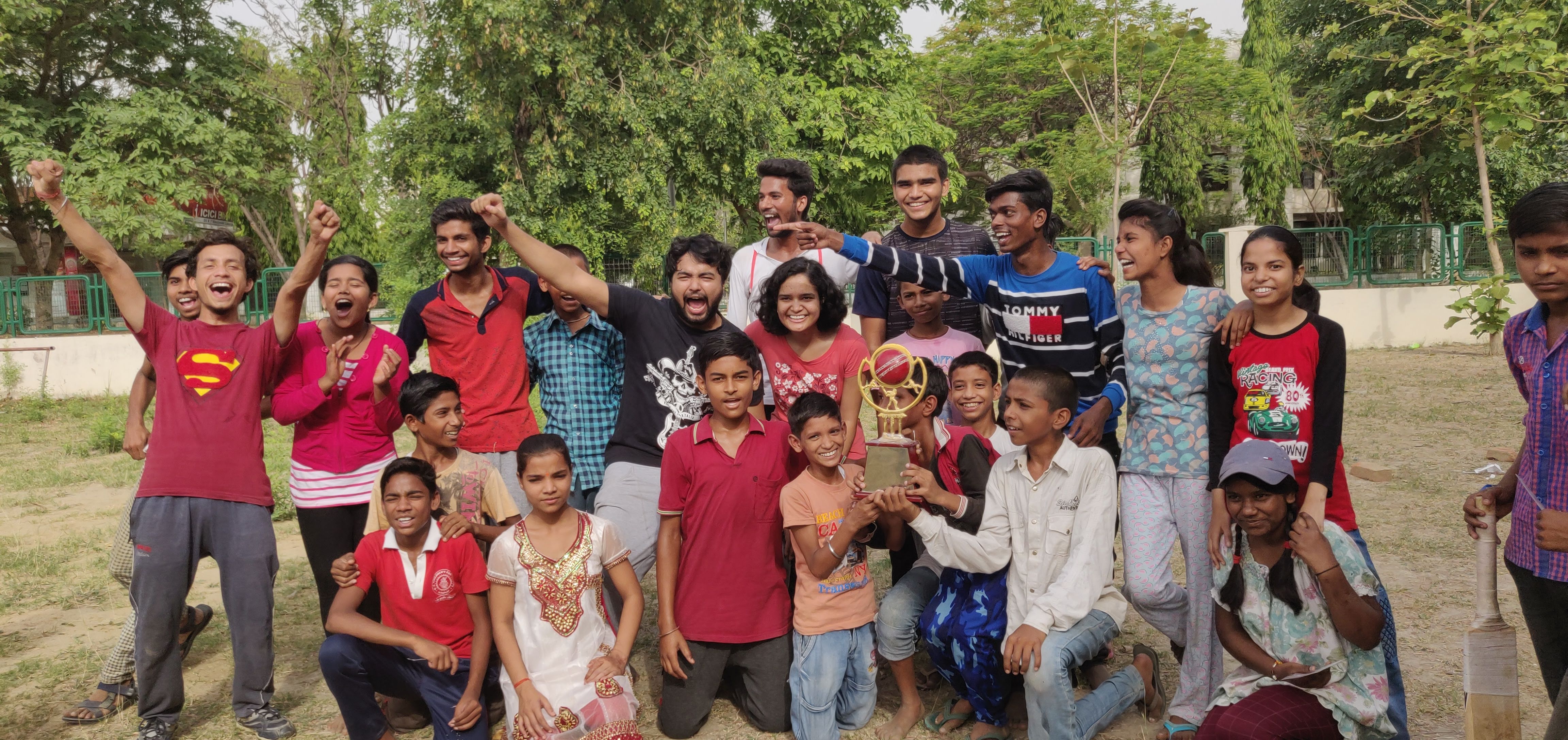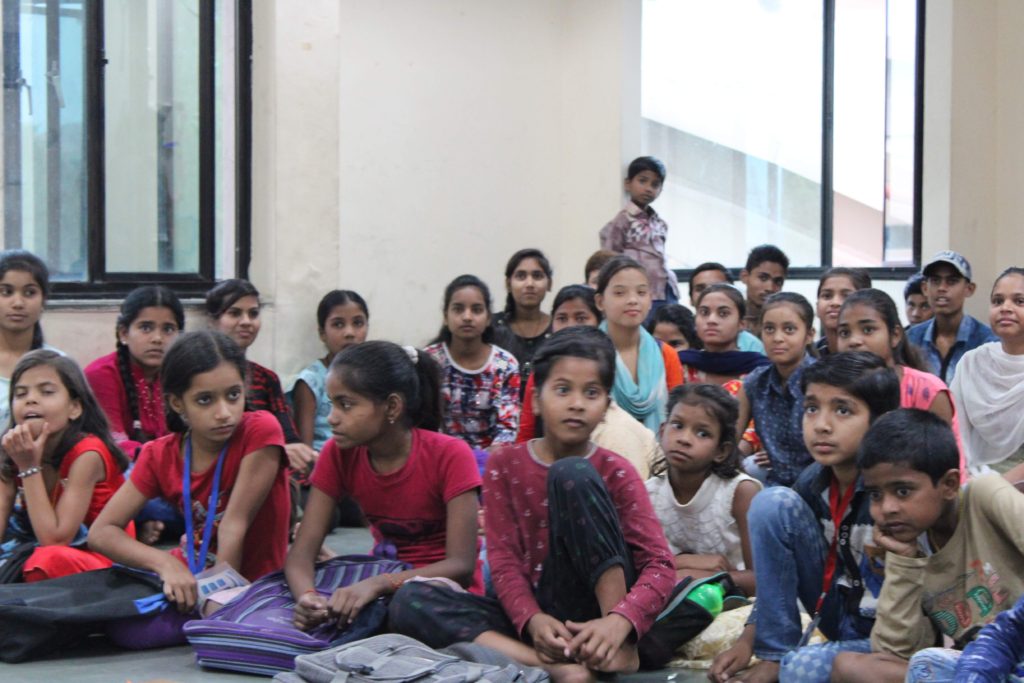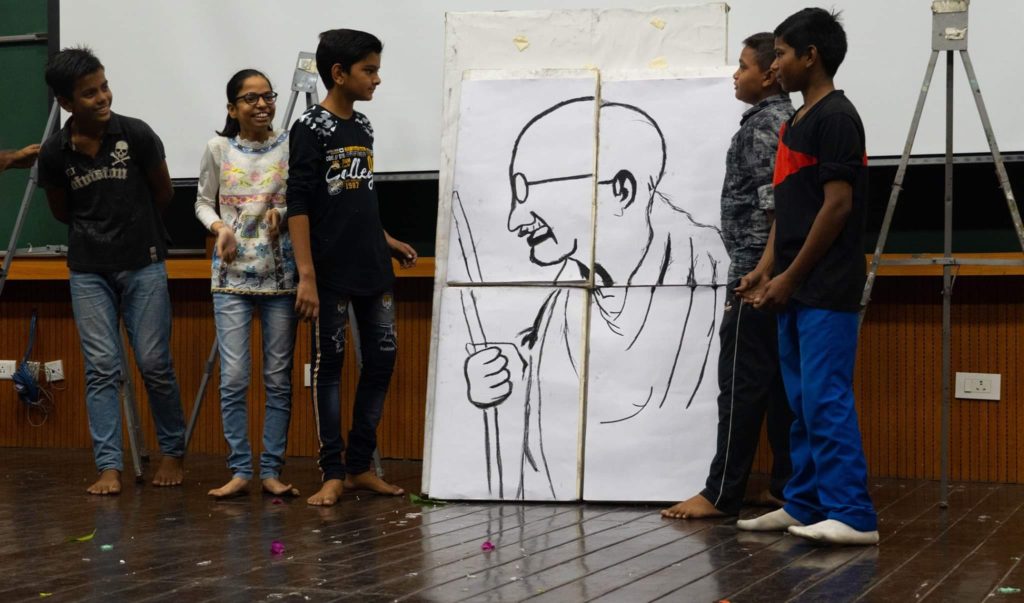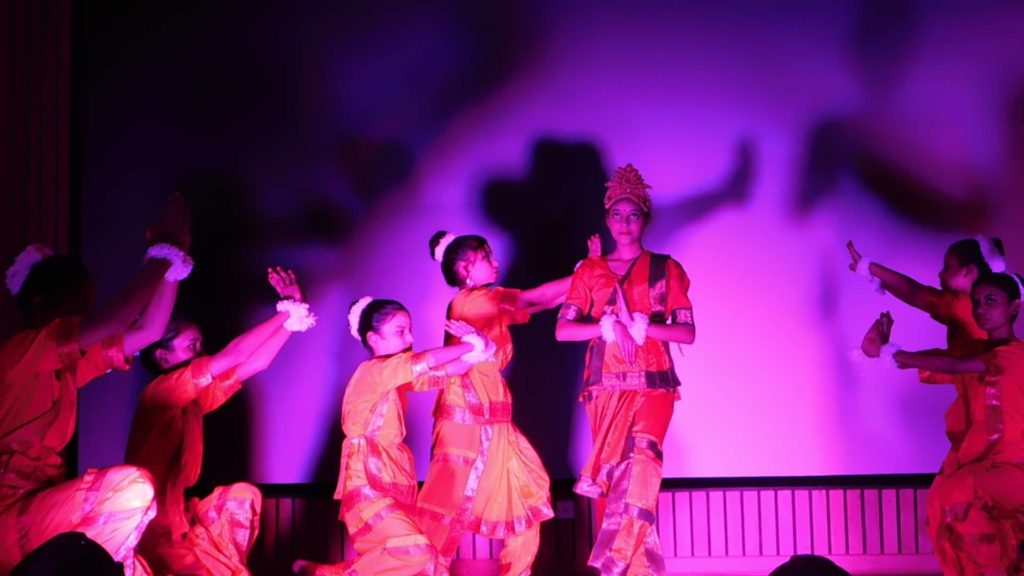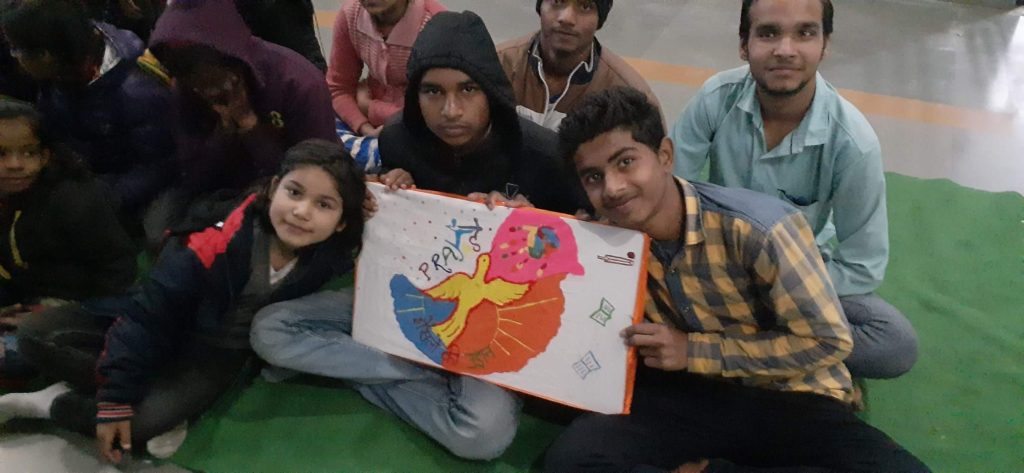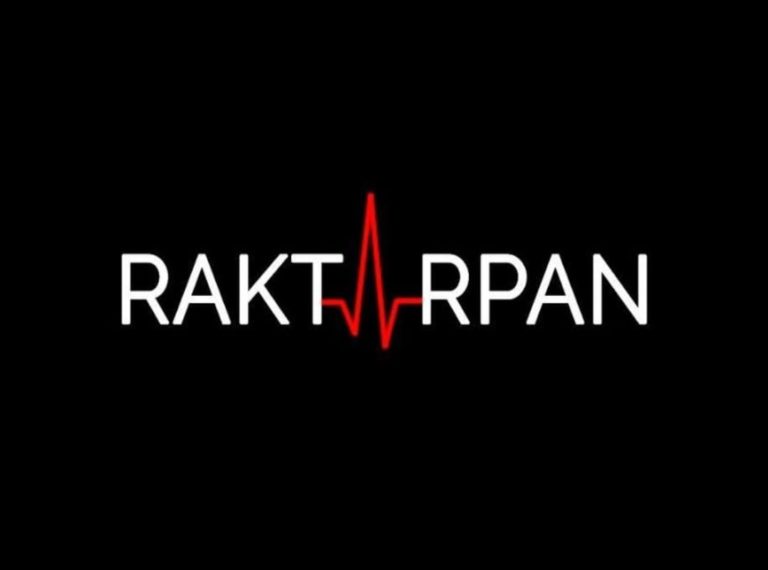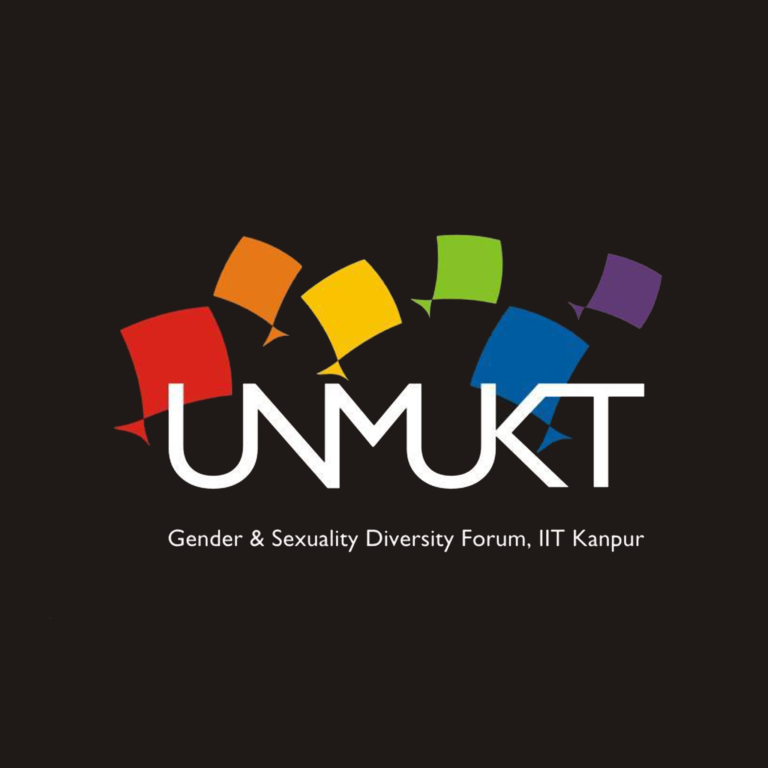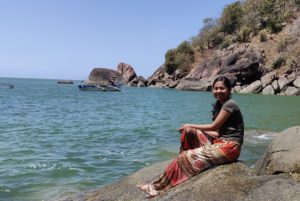The remarkable functioning of clubs and cells in IITK can be attributed to it’s past; the time when it’s founders and members burnt the candles at both ends to ensure it lived up to their vision and expectations. Vox Populi brings to you the first edition of the series Campus blueprints: The journey of Prayas. We interviewed one of the founders of Prayas, Vijaya didi and an ex-coordinator Ekta Singh (Y15), to give an overview of how the idea of Prayas evolved over the years and how Prayas has gained love from parents of the underprivileged kids studying there. Read on to explore more of its history:
The Beginning
The dawn of a selfless endeavour-
Vijaya didi came to IIT Kanpur in 1968 and back then, she became a part of the ‘Opportunity School’ to cater for the education of unprivileged kids. They aimed to teach all the children under one roof, as she was against the notion that underprivileged and affluent children can’t study together. But unfortunately, no one from the campus community supported her idea in those times. Little did she know that her efforts would embark a journey enabling, inspiring and remarkably transforming several unfortunate lives.
She narrates an incident where she encountered some kids playing nearby while she was heading to school. This aroused her curiosity and she inquired whether they attended schools. To this, one of them replied, ‘Where is the school?’. This immensely disheartened her, as in the intellectual environment of the campus, these students did not have a school to go. Therefore, with the help of volunteers from Vivekananda Samiti, she planned to educate the children who couldn’t afford to attend schools themselves. However, this wasn’t satisfactorily approved by their parents who conceived it as some deceiving educational claims. Vijaya didi, along with other volunteers, met those parents personally and assured them of proper safety and quality education.
Early days: Challenges and Activities-
Vijaya Didi exclaimed that she faced significant problems while starting ‘Apna School’ for the migrants, but for Prayas, volunteers were well responsible and did all the work on a personal level.
In the initial phase of Prayas, they did not get proper space to accommodate the children and carry out the activities. All they could manage to get was a room, which Vivekananda Samiti used at night – to run their discussions and undertake spiritual gatherings, while in the evening, classes were conducted. The request to vacate the room was denied by the Samiti Members and with the influx of a large number of students, Prayas finally shifted to Old Sac, lawns and corridors for taking classes.
There were several erstwhile useful events conducted by the volunteers – ranging from competitions to quiz programs. The funds were procured from Gymkhana and leveraged for providing all the facilities. The classes commenced from 4:30 in the evening and ended around 7. Monthly PTMs were conducted to maintain the interaction of parents, students, and teachers. Previously, games and sports were conducted every day for an hour but now only Fridays are reserved for the same, with no studies carried out that day. With students engaging in various activities, some managed to learn music from Vijaya didi herself.
The Pinnacle: Recognition under Gymkhana-
Initially, Prayas only existed as a small scale program for migrants’ children. Vijaya didi figured that their concept of Prayas, known back then as Evening School, would likely dissolve after she moved away in 1992. But the Evening School carried on regardless of many obstacles and became an official cell under the Gymkhana, in the year 2001.
Slowly, the Prayas movement became widely known on campus and students started getting involved in it in various ways. Many became more enthusiastic about teaching.
Vijaya didi exclaimed that Prayas is doing a phenomenal job till date and has become more of a family than a school!
Evolution
In the face of Adversities-
Prayas, though working well, has its fair share of ups and downs. For instance, it has become more difficult to work in IITK now that there are many new rules and regulations – making aspects like arranging logistics has become more strenuous.
Children come to Prayas from Nankari and far off places like Naramau in thousands of numbers and so, there are entrance tests conducted nowadays to filter out the selection. The strict rules of the institute hinder the activities. In one such incident, children from Nankari were relentlessly beaten up by the security while playing in the campus park and were then rescued by one of the volunteers. As of now, passes are issued to permit their entry on the campus. There are several other restrictions imposed on the children including limited roaming and timely departures.
Vijaya didi expressed how things have changed in our society and addressed its negative impacts as well – lack of involvement being the most crucial one.
The Prayas Family-
When Prayas functioned in the Old SAC, various festivals were celebrated together with the students from Apna School and there were unique celebrations arranged for students’ birthdays. These extended to the outdoor stadiums or the auditorium ground, with students jumping around, dancing, and singing their hearts out! Even today, the interaction with students isn’t limited to studies. Sometimes the team visits their home after classes for dinners and various other festivities.
Vijaya didi addressed the involvement of many faculty members earlier in collaboration with Prayas. Many others had even celebrated their kids’ birthdays with the Prayas’ collective birthday. Unfortunately, these things that used to take place almost monthly, have now subsided.
Major Milestones achieved-
Some major milestones achieved were regarding awareness about the Right to Education act wherein students coming from financially weak backgrounds are admitted to good private schools for free and provided education through the school funds. One of the volunteers (co-ordinator too), Mukund Mittal, contributed significantly in propagating knowledge of the act. They taught students from classes 3-12, which eventually helped a lot of these students avail the benefits of the act.
Prayas has collaborated with few of the local NGOs over the years for sessions pertinent to personality development, hygiene, and child labour.
A successful session called “Happy Reading” conducted by one of the NGOs involved sending a large number of books to students to encourage them to read and further exchange those books amongst themselves.
Although, a drawback pertinent to such NGO based collaborations was their agreement to work with Prayas for their name and reputation and for the sake of conducting a session in a prestigious college like IIT Kanpur. Ekta encouraged that such NGO based collaborations shouldn’t be just one day sessions but must work in the long run to benefit students and help Prayas in its goal of making education attainable to all.
Redeeming hope in the moments of despair-
Vijaya didi talked about how she often found herself feeling dejected and helpless while thinking about the deprived situation of the children. For instance, whenever young girls (students from Prayas) were forced into situations like marriage, the team visited their homes beforehand to try to stop their families from doing so. Upon this, their fathers justified how they’re unable to afford their education once they reach the age of 15/16. Regardless, the situation was a saddening one and unfortunately, even such visits couldn’t put a stopper to child marriage. With time, things changed and now young girls strongly fight for their right to education.
A walk through Ekta’s journey in Prayas-
Ekta stepped into Prayas as a replacement volunteer, to substitute for another volunteer for the day. She ended up taking a Drawing class that day wherein one of the students tried to sketch her portrait! This made her realise that if the kids can familiarize themselves with her within a day and can be so enthusiastic to learn despite every setback, then something must be done to mitigate their problems and make them capable enough to work independently in future.
Reciting another such incident, Ekta told us of the time she visited a student’s place on the new year’s eve, meeting his family of 5-6 members with both of his parents being labourers. She recalls being extremely discouraged noticing their deprived state and struggle for survival under one shattered roof. All such incidents were disheartening for the entire team but the students’ talents and enthusiasm motivated them to keep going forward!
When asked about how she feels after helping a student, Ekta expressed, “Such a feeling cannot be described in words, but if we draw its comparison to something, it can be the happiness one will get on finally going back to campus after the lockdown.”
In the last four years…
In the last four years, the students bolstered their personality and co-curricular skills while simultaneously maintaining their academic performances. As a part of everyday activities, a one hour assembly is conducted wherein they recite poems, enact a drama or tell a story. Progressive changes were observed with time, with students becoming less dependent on the volunteers and starting to analyse things themselves. They now present their self-composed stories, poems and plays conveying social awareness and even targeting women empowerment. The students are improving with each passing day and their learning is notably reflected in their progress.
Present
Working and Activities: Pre-COVID
Prayas runs from Monday to Saturday and the working consists of two parts: assembly and academics. In the former, the focus is on personality development and communication. The students are encouraged to prepare songs, stories, drama, etc and perform in front of others. It can even be a math puzzle or some sort of craftwork which is followed by the study sessions. There are many events held throughout the year like Prayas Premier League (PPL), which is a 15 days cricket tournament held during summers. There are separate English classes organized during summers. There is also an annual function where students perform and are given awards and certificates based on discipline and grades. Two major events are Udaan and picnic. On picnic day, the students are taken for a visit to any area in or near Kanpur. Udaan is a “mini-galaxy of Prayas” where many competitions are held. Students are divided into groups and many arts, speaking, story writing competitions, antakshari, etc are organized.
Vijaya didi still visits Prayas once in a while, especially Fridays, but she remains in touch with the students through calls, collective dinners and other means. She attends the meetings once in 3 months and claims that staying connected and united is the only way to lend help to the unfortunate children.
Functioning in Lockdown-
Ekta remains apprehensive about the proper resumption of activities considering the expected restrictions after campus reopens. Given the hard times, she says they have been in touch with children who have smartphones, through Whatsapp. Junior batches aren’t much affected with the pandemic’s straits; the problems imposes for the senior children, who are likely to miss exams, thus affecting their learning schedule significantly.
Their stories to tell-
Referring to one of her students, namely Sachin, Vijaya didi exclaimed that he is extremely talented and skilled in stand up comedy involving dank humour. He is in twelfth grade and still visits her to learn music. He further plans to pursue it and so she is assisting and providing him with the necessary tangible support. He even helps in the proceedings of Apna School. His parents were adamant to send him for the job of a watchman but she dissuaded considering that he had stunted growth and such a job can prove to be harmful to him.
Future
When asked about Prayas’ future, Ekta vehemently encouraged all the newer and remaining older members of Prayas to form a better bond with the students in the coming years.
As for her involvement with Prayas, Ekta mentioned that she’d been taking regular classes in the lockdown while acknowledging the decline in interaction on a personal level. Furthermore, she talked about how Prayas now strives to sponsor the education of some of the children to enable them to thrive and pave the way for a better future.
Advice to current and future Prayas Members-
Vijaya didi –
“The spirit to do social good should come from within you. You should have the enthusiasm, the passion to teach and motivation to persuade parents to get their children studying. The present volunteers are doing a marvelous job in managing Prayas and it should continue, although, some human errors are bound to happen, let them not discourage you.”
Ekta –
“Be a ‘friend’ to the students, bond with them. Try visiting their homes every week or so. Understand their struggles and conditions! Keep a strong team bonding with other volunteers as well and try to take new initiatives for the children. I believe that not only Prayas volunteers but all the IITK students should raise awareness amongst the sanitation workers, mess workers, washermen and address various social issues like child marriage, gender bias and lack of education.”
——————————————————————————————————————————————————————————————————-
Writers: Aaryan Mehar, Ananya Gupta, Astha Pant, Namgyal Lhamo Dolma, Sandipan Mitra
Editor: Sarvesh Bajaj




